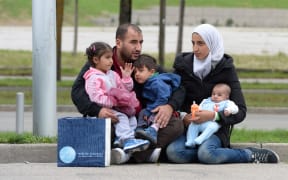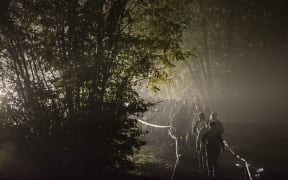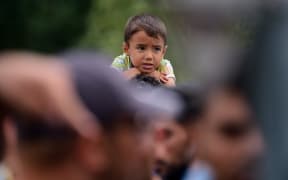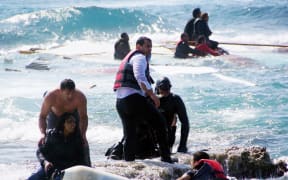The Greek island of Lesbos - the main gateway into Europe for thousands of desperate asylum seekers - has a new challenge: finding space to bury the dead.
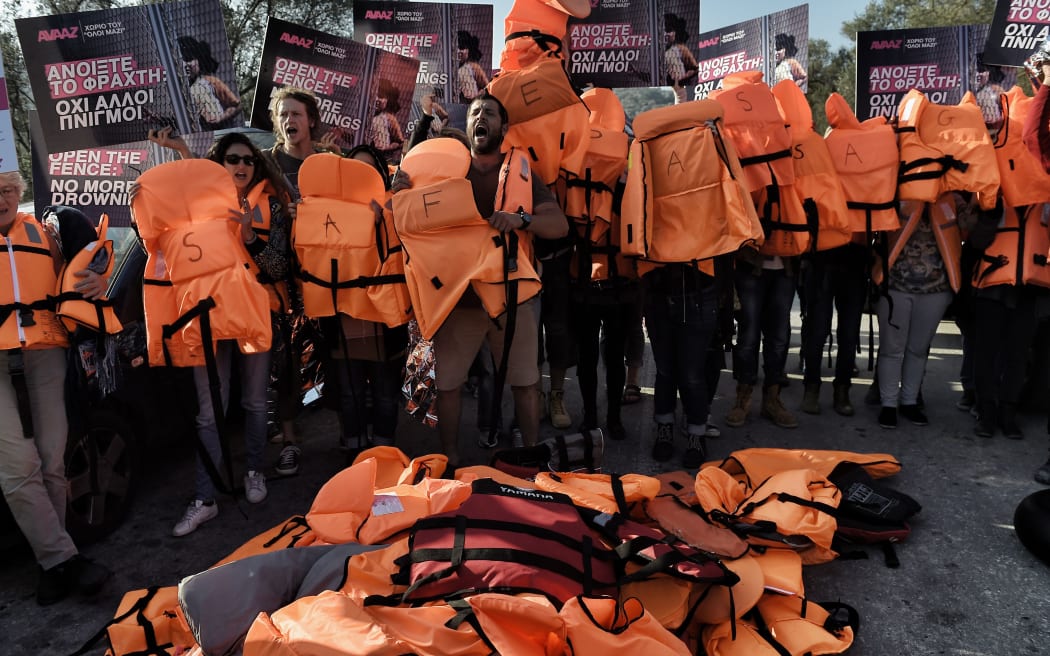
Activists protest the treatment of migrants during a visit to Lesbos of Alexis Tsipras and European Parliament President Martin Schulz (not pictured). Photo: AFP
Nearly 500 people have died trying to cross the Aegean Sea this year, many of them in treacherous narrow stretch of water separating Lesbos from Turkey.
Almost 200,000 migrants and refugees arrived in Lesbos in October alone, and at least 80 drowned in that month, many of them children.
The bodies of another five people, including a woman and two children, were recovered early on Wednesday, the Greek coastguard said.
Local municipal and church authorities this week declared the island's cemetery full, leaving no option but to store dozens of bodies in a refrigerated container.
"We hope that the authorities will be able to find a solution quickly," Effi Latsoudi, a member of a local asylum-seeker support group, said.
Bishop Iakovos said it could take two to three years to release a property near the island's hospital suitable for use as a burial ground.
Lesbos mayor Spyros Galinos said he would take up the issue with Prime Minister Alexis Tsipras when he visited the island later this week.
"We have a problem with the morgue and the cemetery but it is in the process of being resolved," the mayor said.
At the local morgue - which is full to capacity - coroner Thodoris Noussios was at his wit's end.
"This morning we received five more bodies. This tragedy must stop."
More than 50 bodies were currently being kept in the morgue and a 12-metre refrigerated container outside the hospital supplied by private donors, Mr Noussios said.
"The bodies will stay here until identification is complete," he said.
Agios Panteleimonas cemetery is the final resting place for 80 refugees and migrants who could not be identified for their families to be contacted.
"In the case of people who are identified, we ask their families to tell us where they wish the body to be buried, in Greece or in their country of origin," the coroner said. "It is a procedure that can require a lot of time."
Lesbos authorities on Tuesday called a three-day period of mourning in the memory of those who drowned trying to reach the island.
Tsipras "ashamed"
Mr Tsipras said he was ashamed to be part of a European leadership that had failed to stop the sinkings of migrant' boats, which now occurred almost daily.
"We have to discourage these people from embarking on these journeys of death," he said during a joint press conference with visiting European Parliament chief Martin Schulz.
"The human sacrifice that shames European civilisation must stop," he said as the first asylum seekers to be relocated from Greece under an EU plan to share out the arrivals among member states were flown out to Luxembourg.
More than 700,000 people have crossed the Mediterranean this year in a massive wave of migration.
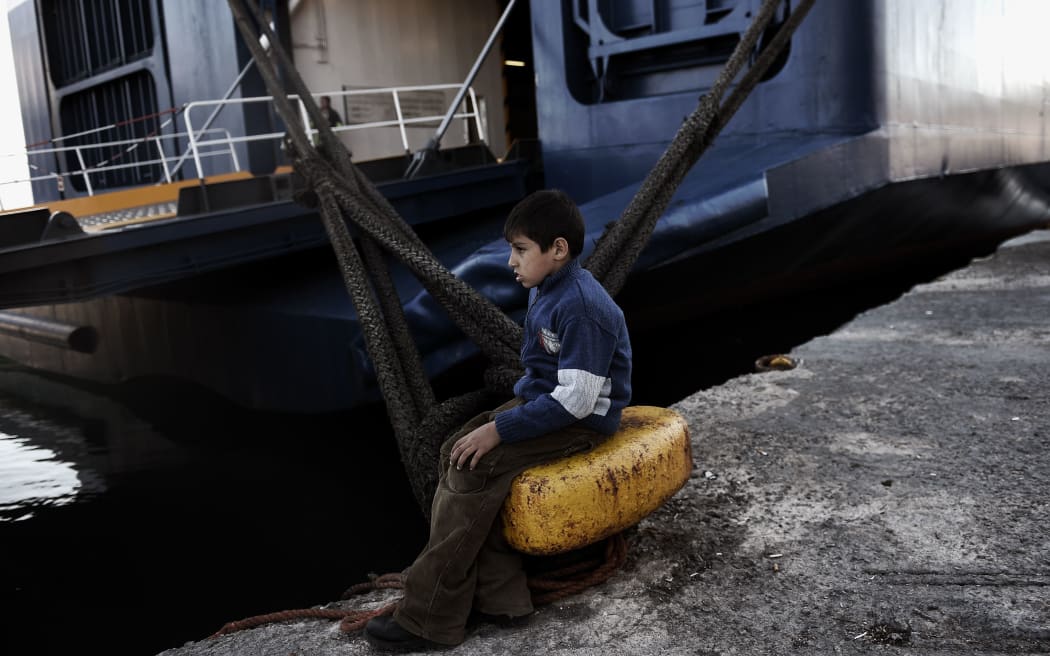
A boy at the port of Lesbos Island. Photo: AFP
-ABC
